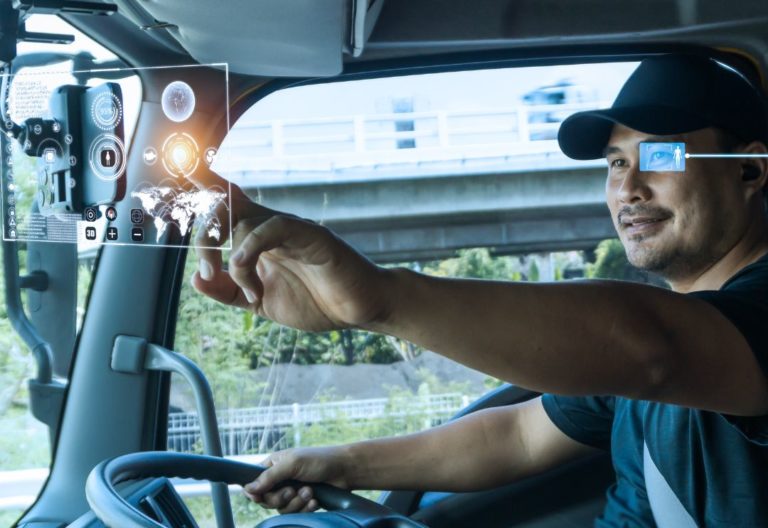In today’s rapidly evolving business landscape, efficiency and productivity are paramount for fleet businesses in Australia. One technology that has revolutionized fleet management is GPS vehicle trackers. These sophisticated devices offer real-time tracking and monitoring capabilities, providing businesses with invaluable insights into their fleet operations.
Importance of GPS Vehicle Trackers in Australia
Australia’s vast and diverse terrain poses unique challenges for fleet businesses. From navigating through urban jungles to traversing remote outback regions, ensuring the safety and efficiency of commercial vehicles is crucial. GPS vehicle trackers play a pivotal role in addressing these challenges by offering precise location tracking, route optimization, and vehicle diagnostics.
How GPS Vehicle Trackers Work
GPS vehicle trackers utilize a network of satellites to pinpoint the exact location of vehicles in real-time. These devices are equipped with GPS receivers that communicate with satellites to determine the vehicle’s latitude, longitude, and altitude. Additionally, advanced trackers may incorporate cellular or satellite communication technologies to transmit data to a centralized server.
Benefits for Fleet Businesses
Improved fleet mangement
“One of the primary benefits of GPS vehicle trackers is enhanced fleet management. By providing real-time location data, businesses can track the movement of vehicles, monitor driver behavior, and optimize route planning. This level of visibility enables companies to streamline operations, reduce fuel consumption, and minimize vehicle wear and tear.”
![]()
Enhanced Safety and Security
GPS vehicle trackers play a vital role in enhancing the safety and security of commercial vehicles. In the event of theft or unauthorized use, these devices enable businesses to track and recover stolen assets quickly. Moreover, features such as geofencing and driver alerts help companies ensure compliance with safety regulations and mitigate risks associated with unauthorized vehicle usage.
Cost Savings
Implementing GPS vehicle trackers can result in significant cost savings for fleet businesses. By optimizing routes and reducing idle time, companies can minimize fuel expenses and improve overall operational efficiency. Additionally, proactive maintenance scheduling based on vehicle diagnostics can help prevent costly breakdowns and prolong the lifespan of vehicles.
Increased Efficiency and Productivity
GPS vehicle trackers empower businesses with actionable insights to optimize fleet performance and resource allocation. By analyzing data on vehicle utilization, driver behavior, and route efficiency, companies can identify areas for improvement and implement strategies to boost productivity. Moreover, real-time monitoring allows for dynamic scheduling adjustments, ensuring timely deliveries and customer satisfaction.
Types of GPS Vehicle Trackers
GPS vehicle trackers come in various forms, ranging from compact plug-and-play devices to sophisticated hardwired systems. Plug-and-play trackers are ideal for small fleets or individual vehicles, offering easy installation and flexibility. On the other hand, hardwired trackers provide permanent installation and robust features suited for large-scale fleet operations.
What Linxio gas to offer
Linxio offers a wide range of high-quality GPS trackers to suit all budgets and requirements, from the low-cost TR500 vehicle tracker to the AT12 standalone tracking device with an impressive 8-year battery life. Learn more.
Features to Consider When Choosing a GPS Vehicle Tracker
When selecting a GPS vehicle tracker, it’s essential to consider the specific needs and requirements of your business. Key features to look for include real-time tracking, geofencing capabilities, driver behavior monitoring, and customizable reporting options. Additionally, factors such as battery life, durability, and integration with existing fleet management systems should be taken into account.
Real-life Examples of Businesses Benefiting from GPS Vehicle Trackers
Numerous businesses across Australia have experienced tangible benefits from implementing GPS vehicle trackers in their fleet operations. From courier companies optimizing delivery routes to construction firms improving equipment utilization, the versatility of these devices transcends industry boundaries.
Challenges and Limitations
certain challenges and limitations. Common issues include signal interference in remote areas, reliance on battery power for portable devices, and potential privacy concerns related to driver monitoring. Additionally, integrating GPS tracking data with existing IT systems can pose technical challenges for some organizations.
Future Trends in GPS Vehicle Tracking Technology
Looking ahead, the future of GPS vehicle tracking technology holds exciting prospects for further innovation and advancement. Emerging trends such as artificial intelligence, machine learning, and Internet of Things (IoT) integration are poised to revolutionize fleet management, enabling predictive analytics, autonomous vehicle navigation, and seamless connectivity.
Conclusion
In conclusion, GPS vehicle trackers have emerged as indispensable tools for fleet businesses in Australia, offering a myriad of benefits ranging from improved efficiency and safety to cost savings and productivity gains. By harnessing the power of real-time tracking and data analytics, companies can optimize their operations, enhance customer satisfaction, and stay ahead of the competition in today’s dynamic business environment.
FAQs
1. What is geofencing, and how does it benefit fleet businesses?
Geofencing is a virtual perimeter that defines a geographical boundary. Fleet businesses can use geofencing technology to create designated areas on the map and receive alerts when vehicles enter or exit these zones. This feature enhances security, enables route optimization, and improves regulatory compliance.
2. Are GPS vehicle trackers compatible with different types of vehicles?
Yes, GPS vehicle trackers are compatible with a wide range of vehicles, including cars, trucks, vans, buses, and construction equipment. Whether you operate a small delivery fleet or manage a large-scale transportation network, there are tracker solutions available to suit your specific needs.
3. How can GPS vehicle trackers help reduce insurance premiums for fleet businesses?
Many insurance providers offer discounts for fleet businesses that implement GPS vehicle trackers. By providing evidence of proactive risk management and enhanced security measures, businesses can negotiate lower insurance premiums and potentially save thousands of dollars annually.
4. What role do GPS vehicle trackers play in driver safety and compliance?
GPS vehicle trackers enable businesses to monitor driver behavior in real-time, including speeding, harsh braking, and unauthorized detours. By promoting safe driving practices and enforcing compliance with company policies, these devices help reduce accidents, liability claims, and regulatory fines.
5. How do GPS vehicle trackers contribute to fuel efficiency and environmental sustainability?
GPS vehicle trackers provide valuable insights into fuel consumption patterns, idling time, and inefficient driving behaviors. By analyzing this data, fleet businesses can implement fuel-saving strategies such as route optimization, maintenance scheduling, and driver training programs. In addition to reducing operational costs, these initiatives contribute to lower carbon emissions and a greener fleet footprint, aligning with environmental sustainability goals.
6. What are the key considerations for maintaining data privacy and security when using GPS vehicle trackers?
Data privacy and security are paramount concerns when implementing GPS vehicle tracking systems. Businesses must adhere to strict regulations governing the collection, storage, and use of tracking data, ensuring that sensitive information remains confidential and protected from unauthorized access. Employing robust encryption protocols, access controls, and regular security audits can help mitigate risks and safeguard against potential breaches or data leaks.
7. How can GPS vehicle trackers be integrated with other fleet management technologies for seamless interoperability?
Integrating GPS vehicle trackers with complementary technologies such as telematics systems, dash cams, and predictive analytics platforms can unlock additional synergies and functionality. By aggregating data from multiple sources, businesses gain a holistic view of their fleet operations and can derive actionable insights to optimize performance, mitigate risks, and drive continuous improvement initiatives.
8. What role do GPS vehicle trackers play in optimizing asset utilization and resource allocation?
GPS vehicle trackers enable businesses to track not only the location of vehicles but also the utilization of other assets such as trailers, equipment, and machinery. By monitoring asset availability, usage patterns, and downtime, companies can maximize resource utilization, minimize idle time, and allocate resources more efficiently to meet customer demands and operational requirements.




